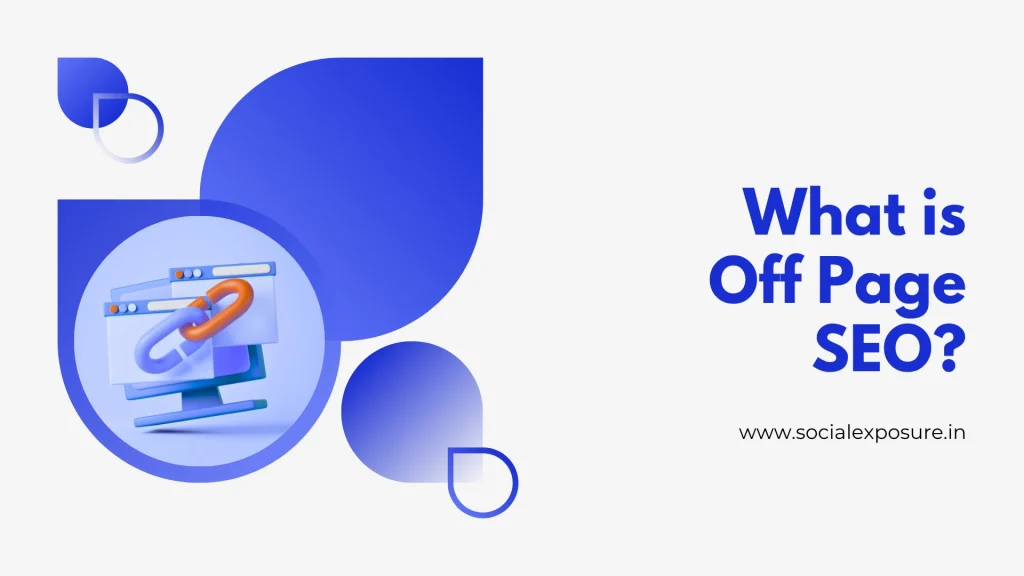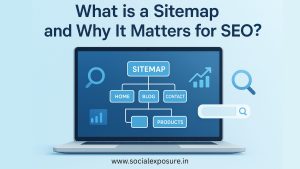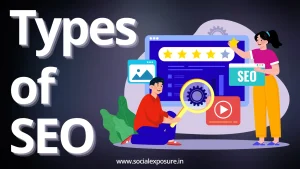You’ve probably spent time making sure your website looks good, loads fast, and has useful information. That’s great but that’s only half the story. The other half? It’s what happens outside your website that most people overlook. And that’s where off page SEO steps in.
Think of your site as a shop. You can paint the walls, arrange the shelves, and make sure everything runs smoothly inside. But if people aren’t talking about your shop outside, no one’s coming in. Off page SEO is all about that outside buzz that shapes how people and search engines see your site across the web.
It’s not just about getting backlinks, though that’s a big part. It’s about building reputation, trust, and the kind of visibility that search engines value when deciding where to place your site in the results.
In a 2025 industry report by First Page Sage, backlinks were ranked as one of the top 3 most impactful ranking factors, but only when combined with quality content and positive brand signals. That means you can’t just build links, you have to be known for something beyond your pages.
This guide is written to clarify what off page SEO really means, without sliding into overused strategies or terms that confuse more than they help. Whether you’re a business owner, student, developer, or someone simply curious we’re going to walk through it clearly, without noise, so it will actually makes sense.
What is Off Page SEO?
Let’s step outside your website for a moment. Imagine your site as a person at a party. You’ve dressed well, you’re polite, and you speak clearly. But what really builds your image? It’s what others say about you when you’re not in the room. That’s exactly what off page SEO does, it’s the reputation your website earns outside of its own pages.
While most people focus on tweaking things on their site, off page SEO is about everything that happens around it. It includes links from other websites, mentions on forums, social shares, online reviews, and even how consistent your brand looks across the web. These are all part of what’s known as off page optimization.
Search engines like Google use these external signals to figure out how people feel about your site. A study by Ahrefs revealed that over 96.55% of content gets zero traffic from Google, and one of the key reasons is the lack of backlinks, a major component of seo off page activities.
But it’s not just the number of links that matters. It’s who they come from, how relevant they are, and whether they’re natural.
When your site is mentioned across reputable platforms, it sends a message to Google: “This website is known, referenced, and trusted.” These seo off page activities influence how your pages are ranked. Think of it as digital word-of-mouth. If enough trusted sources vouch for your content, Google is more likely to show it to users.
In short, off-page SEO is how the rest of the internet helps tell search engines that your site deserves attention and that’s something on-page tweaks alone can’t do.
Why Does Off Page SEO Matter?
Let’s say you run an e-commerce store or a blog. You’ve built a clean website, uploaded good content, maybe even added a few keywords here and there. But traffic isn’t coming in. That’s where off page SEO makes all the difference.
Search engines don’t just look at what you say about yourself, they care a lot more about what others say about you. So when your brand or website is mentioned elsewhere on the web, that acts like a signal of trust. The more relevant and trustworthy those mentions are, the more confidence search engines have in showing your site to others.
So, is off-page SEO important? If visibility, trust, and growth are your goals, then yes it’s essential. Let’s break it down.
How It Helps:
- Google uses off-page signals to measure authority
Backlinks from other websites, branded mentions, and positive reviews all show that people trust your site. Google treats these as real-world recommendations. - It boosts your ranking in competitive spaces
For startups and e-commerce brands entering crowded markets, a strong off-page profile can tip the scales. When multiple sites offer similar content or products, the one with more trusted references often wins the higher spot. - It supports long-term visibility
Consistent external activity keeps your presence alive, even when you’re not publishing new content every day. For bloggers, this is key to maintaining ongoing traffic. - It builds user trust through third-party references
If someone finds your link on a reputable site or reads a genuine review, they’re more likely to visit and stay. as It’s trusted by the association, and it works. - It adds relevance from multiple angles
Search engines want to see your site connected to different parts of the web directories, blogs, podcasts, news sites, and community discussions. These off page SEO factors help build a broader context around your site.
So whether you’re running a small online shop, launching a new tech product, or starting a food blog, the way your website lives outside your domain can be just as important as what’s inside it. And that’s what makes off page SEO matter.
Main Components of Off Page SEO
Now that you know why it matters, let’s look at the most practical parts of off page SEO that make the biggest difference. These are the off page SEO types that shape how your website is seen by both users and search engines.
These are some techniques even SEO Experts at Social Exposure use while building online authority.
Backlinks
Backlinks are one of the strongest indicators that your content is trusted by others. When another site links to yours, it’s like giving your site a vote of confidence. But not all links are equal. A few high-quality links from well-known, relevant sites often carry more value than dozens of random ones.
Search engines also look at:
- Link relevance: Does the linking site share your topic or audience?
- Link placement: Was the link earned naturally within content?
- Anchor text: What words were used in the link?
When done right, backlinks help search engines place your site higher in results because they reflect trust from outside sources.
Brand Mentions
Sometimes, your name being mentioned without a link still carries weight. These are called unlinked brand mentions. Google has learned to recognize when people talk about your business online, even without a clickable link.
For example, if people on forums, blogs, or news articles refer to your company by name, that helps build online presence and authority. Linked or not, these brand mentions are part of what keeps your name in the conversation which plays into off page SEO techniques that go beyond just getting backlinks.
Authority Signals
When other websites mention you positively, share your content, or refer to your business in a way that connects with relevant industries, it adds to your authority. This includes:
- Citations from trusted directories or listings
- Reviews and testimonials from reputable sources
- Consistent mentions across websites with real audiences
Search engines piece these signals together to understand how trusted and relevant your site is. These off page SEO techniques aren’t visible on your homepage, but they shape how your site performs in the long run.
Off Page SEO vs On Page SEO
A common point of confusion is figuring out how off page SEO is different from what happens on your website. The simplest way to see it is this:
On-page SEO is everything you control within your site.
Off-page SEO is how the rest of the internet responds to your site.
Here’s a Quickcomparison to help make that distinction easier.
Aspect | On Page SEO | Off Page SEO |
Focus Area | Inside your website | Outside your website |
Main Goal | Improve content structure and readability | Build trust, authority, and visibility |
Content | Written content, media, formatting | Shared content, brand mentions, backlinks |
Keywords | Keyword placement, headings, meta tags | Anchor text, link context |
Technical Elements | Page speed, mobile experience, structured data | Referring domains, link profiles |
User Experience | Navigation, layout, internal linking | Third-party reviews and public mentions |
Optimization Tools | CMS, SEO plugins, site builders | Outreach tools, PR platforms, monitoring tools |
Measured By | Bounce rate, dwell time, on-page clicks | Backlink count, link quality, referral traffic |
Controlled By | Website owner or team | External sources (publishers, users, influencers) |
Value To Search Engines | Shows relevance and usability | Shows credibility and popularity |
Both are important, but they work in different ways. You control your on-page actions directly. Off-page efforts are built over time through relationships, shares, mentions, and the strength of your content.
If you’re still wondering about the difference between off page and on page SEO, just remember one shapes your content, the other shapes your reputation.
Off Page SEO Factors That Influence Rankings
Search engines pay close attention to what’s happening outside your website. While no single action guarantees results, certain off page SEO factors consistently shape how websites rank especially in competitive spaces. These signals help search engines decide whether a site is credible, trustworthy, and worth showing to users.
Agencies like Social Exposure monitor these factors regularly to improve their client websites’ credibility.
Here are the most impactful ones:
1. Domain-Level Link Authority
Links from well-established websites carry more value. A backlink from a recognized domain in your field often has more weight than dozens from lesser-known sources.
2. Diversity of Backlink Sources
It’s not just about how many links you have, it’s also about where they come from. Having links from blogs, news outlets, educational sites, directories, and niche forums shows a broader footprint.
3. Mentions from Relevant Websites
Mentions, whether linked or not, from websites that cover similar topics help search engines understand your content’s relevance. These signals strengthen context around your site.
4. Content Context Around Links
Search engines analyze the text surrounding your backlinks. A link placed naturally within relevant content is often more valuable than one dropped into a random list.
5. Link Freshness
Old links don’t lose all their value, but newer links often signal current relevance. Search engines consider how recently a site has earned mentions or backlinks.
6. Branded Anchor Text Usage
When websites link to you using your brand name, it builds recognition and trust. Too much exact-match keyword linking can appear manipulative, while branded terms add balance.
7. User Signals from Referring Pages
If the page that links to your site has real user activity like comments, traffic, or shares that link can pass more value than a link from a static, inactive page.
8. Social Engagement
Likes, shares, and comments don’t directly influence rankings, but they can amplify your content and increase its chances of being linked to. That second-degree visibility still matters.
9. Reputation Across Platforms
When your name or site is consistently mentioned across directories, review platforms, and knowledge panels, it tells search engines you’re known and active.
10. Consistency of Mentions
Repetition matters. If multiple trustworthy sites continue to reference your brand or website, that recurring pattern strengthens your perceived authority.
These are the off page SEO factors that hold real weight. They’re not shortcuts, they take time, consistency, and a good reason for others to talk about you.
Common Off Page SEO Activities
It’s easy to get overwhelmed with checklists and tools, but most of them don’t matter if they’re not building trust. What really counts are the seo off page activities that contribute to authority the ones that other credible websites recognize and search engines take seriously.
You don’t need dozens of activities. Just the right ones with real value are enough, something we emphasize at Social Exposure.
Here’s what still works and why:
1. Guest Posting on Relevant Websites
Writing for well-known blogs in your niche is still a strong way to earn links and reach new readers. The key is to focus on value, not volume. One good article on the right site is worth more than a dozen low-quality placements.
2. Participating in High-Authority Forums
Platforms like Reddit, Quora, or niche-specific forums offer opportunities to answer real questions and mention your brand when it makes sense. When done naturally, this builds topical relevance and brand awareness.
3. Engaging With Industry Blogs and News
Leaving thoughtful comments, sharing articles, or being quoted in newsletters keeps you in the loop and sometimes leads to earned links or brand mentions.
4. Link Reclamation
If someone has mentioned your brand or content but hasn’t linked back, you can reach out and ask for that missing link. This is a high-impact, low-effort tactic when done respectfully.
5. Unlinked Brand Mentions
Google recognizes mentions even without a link. Focus on being talked about in the right places: publications, reviews, interviews, directories, and podcast appearances.
6. Local Listings and Citations
If you’re a business with physical presence or local service, consistent listings on directories like Google Business Profile, Yelp, and Justdial still matter. Make sure they’re accurate and up to date.
7. Podcast Guest Appearances
Appearing on podcasts relevant to your audience helps with exposure and often earns a backlink from the show notes. Plus, the content stays live and searchable.
8. Digital PR
Submitting expert quotes to journalist platforms or contributing insights to media requests (like through Help a Reporter Out) builds authority and attracts high-value links.
9. Collaboration Campaigns
Partnering with other creators or brands for interviews, co-written posts, or research reports can lead to strong cross-links and mentions.
10. Content That’s Referenced Naturally
Publishing something useful, a tool, checklist, report, or guide creates its own opportunities for links and mentions. People link to content that helps them explain a topic.
You can think of this as your off page SEO checklist, but more focused. These are the activities that still move the needle because they aren’t manufactured, they reflect real relationships and recognition.
Off Page SEO Tools You Should Know
You don’t need a hundred different tools to manage your off-site strategy. Just a handful of trusted platforms can give you everything from backlink insights to brand tracking. Whether you’re a beginner figuring it out or an experienced marketer, these off page SEO tools can help measure what really matters.
Here are some tools that continue to stand out in 2025:
Google Search Console
Google Search Console is a free tool from Google that lets you monitor how your website performs in search results. It reveals which pages get the most visibility, who’s linking to your site, and how your content is indexed. For off page SEO, Google Search Console is one of the best tools to analyze your external link profile and check indexing signals that impact your rankings.
Ahrefs
Known for its deep backlink database, Ahrefs helps you find where your competitors are getting links, what anchor texts are being used, and how your own backlink profile is growing. Its content explorer is also helpful for discovering unlinked mentions or new opportunities.
SEMrush
SEMrush is a powerful platform designed to track backlinks, identify referring domains, and analyze anchor text performance. It also helps uncover toxic backlinks, allowing you to maintain clean, high-quality off-page SEO signals with ease.
Moz Link Explorer
Moz Offers a simplified view of your domain’s link authority, spam score, and linking domains. It’s beginner-friendly but still useful for advanced tracking.
Google Analytics
While mostly used for traffic tracking, Google Analytics helps identify where your referral traffic is coming from. This can point you to pages or sites linking to you and how effective they are in sending visitors your way.
Brand24
If your goal is to keep track of mentions across social platforms, forums, and blogs, Brand24 does it well. It notifies you when someone talks about your business or brand, even without linking which matters for off-page credibility.
BuzzSumo
BuzzSumo helps identify trending topics and shows who is sharing and linking to what type of content. Great for discovering new collaboration opportunities or outreach targets.
HARO (Help a Reporter Out)
Haro is a media outreach platform where journalists request expert input. If your pitch gets picked up, it can lead to high-quality backlinks from authoritative sites and brand mentions in the press.
Also Worth Using:
- Majestic: Strong for historical backlink analysis
- Screaming Frog (with integrations): Can help locate link issues tied to your internal or off-site strategy
These off page SEO tools help track your authority as it builds. They’re not about gaming the system they help you understand what’s working and where the next opportunity might be. With the right data, you can focus less on guesswork and more on growing with purpose.
Is Off Page SEO Still Relevant Today?
This question comes up often, especially with how much search has changed in the last few years. Algorithms are smarter, search results are more personalized, and content quality is being judged in real time. So where does off page SEO stand in all this?
The short answer: it’s still very relevant, but not in the same way it once was.
Years ago, getting as many backlinks as possible often worked, even if the quality was questionable. Today, search engines evaluate not just the link, but the context around it, who it’s coming from, why it’s there, and how natural it feels.
This shift is part of how Google has implemented systems like E-E-A-T (experience, expertise, authoritativeness, and trustworthiness) and the Helpful Content System. These updates changed how content is ranked by focusing more on credibility than tricks.
Backlinks are still part of the equation. In fact, Google’s own documentation continues to list them as a factor. But now, links only matter when they reflect actual trust. It’s not about how many you have it’s who is willing to mention you and why.
Search engines also factor in signals that don’t involve links at all, such as unlinked brand mentions, citations, content shares, and user sentiment. This broader lens is what makes off page optimization more reputation-focused than ever.
This shift in how search engines view off page SEO is something agencies like Social Exposure have adapted to quickly. Instead of chasing numbers, they look at how users and publishers genuinely interact with a brand.
So, is off-page SEO important today? Yes, just not as a checklist. It’s important because trust and relevance are now measured from the outside in. And that’s something no on-page tweak can replace.
Conclusion
Understanding off page SEO isn’t about checking boxes or copying tactics. It’s about seeing how your website is perceived outside your domain. It’s about what others say when you’re not in the room and why search engines are paying attention to those conversations.
We’ve gone over what off page SEO is, why it matters, which factors influence rankings, and what kind of activities still work today. You’ve also seen how tools can help, and why relevance now goes beyond just backlinks. These concepts matter more than quick tricks, especially as Google continues refining how it evaluates trust.
You don’t have to do everything at once. Start with one or two real actions that help build your name in the right places. Write for others, participate where your audience is already active, and be consistent.
As a team that works closely with businesses across industries, we know the difference it makes when a brand focuses on clarity over gimmicks. That’s what we believe in as the Best SEO Agency, and that’s how we approach strategy at Social Exposure not by chasing links, but by building credibility one step at a time.
If you’ve been asking how to make your website stand out, it starts with how the web sees you. And that’s exactly where off page SEO comes in.
Frequently Asked Questions
What is off page SEO in simple terms?
It refers to everything that builds your website’s trust and reputation outside your own site. Off page SEO includes backlinks, brand mentions, and other signals that show how others interact with your content across the web.
Why is off page SEO important for my website?
It helps search engines understand how trustworthy and credible your site is. Strong off page SEO can boost rankings, especially in competitive markets where authority matters.
Does social media affect off page SEO?
Social media doesn’t directly impact rankings, but it can increase visibility and lead to brand mentions and backlinks, both of which are valuable off-site signals.
Is link building still effective in 2025?
Yes, backlinks are still a ranking factor. What’s changed is the focus on quality and context over quantity. Earning links from trusted, relevant sites remains effective.
Can I improve my off page SEO without backlinks?
Yes. While backlinks help, other factors like unlinked brand mentions, social engagement, and press mentions also contribute to stronger off page SEO.
How do I know if my off page SEO is working?
Look for growth in referral traffic, higher keyword rankings, and increased mentions of your brand across other websites. These reflect healthy off-site performance.
What’s the difference between off page and on page SEO?
On-page SEO focuses on your own content and structure. Off page SEO deals with how others perceive and reference your site across the internet.
What are brand mentions in off page SEO?
These are instances where your brand is mentioned on external websites, with or without a link. Brand mentions help build authority and are recognized by search engines as trust signals.
How often should I update my off page SEO tactics?
Regularly. Algorithms evolve, and strategies that work now may not hold the same weight later. Reviewing your off page SEO efforts every quarter is a good practice.
Is guest posting still relevant?
Yes, as long as it’s done with purpose. Posting on relevant, high-authority sites can bring traffic, backlinks, and visibility if the content is truly useful.






